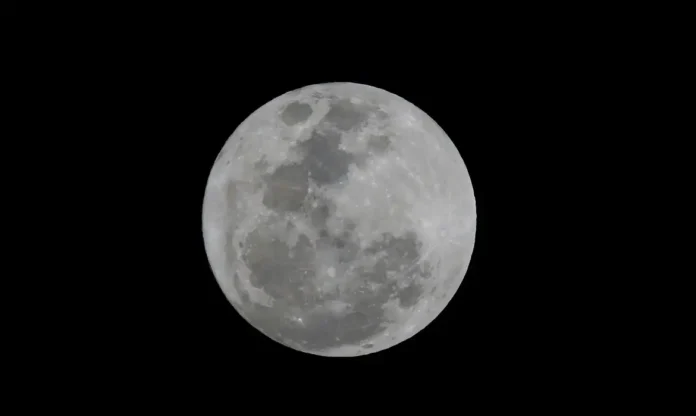Astronomy is a science that arouses curiosity in all generations, from ancient astronomers to modern enthusiasts. Above all, with the advancement of technology, it has become easier to observe the sky and understand astronomical events without having to leave home. In this sense, astronomy apps have become an indispensable tool for those who want to follow the phases of the moon, locate stars and explore the universe.
There are currently several applications that offer immersive and educational experiences, facilitating celestial observation and understanding of space phenomena. Therefore, in this article, we will present some ideal options for those who want to have the cosmos in the palm of their hand. In addition, we will also discuss the functionalities of each one and answer the main questions on the subject.
Best apps for observing the night sky
In order to optimize your astronomical experience, it is essential to choose an application that meets your expectations. With this in mind, we have listed the best options available, considering their functionalities and usability.
1. Stellarium Mobile
Stellarium Mobile is one of the most complete and popular apps for observing the night sky. In fact, it offers an incredible three-dimensional representation of the universe, making it easy to identify stars, constellations, and planets. In other words, Stellarium is like a personal planetarium in your pocket.
By using the app, the user can point their smartphone at the sky and view information about celestial bodies in real time. In addition, it has functions such as zoom and viewing future events, such as meteor showers. In short, Stellarium is ideal for both beginners and more experienced astronomers. Download here.
2. SkyView
Another app that deserves to be highlighted is SkyView, known for its user-friendly interface and accuracy in identifying stars. In fact, it uses your device's camera to show the location of planets, stars and artificial satellites.
SkyView also provides detailed information about each celestial body, as well as allowing you to track important astronomical events. You can set reminders for meteor showers or eclipses. Due to its features, it is a popular option among those who are passionate about the cosmos. Download here.
3. Moon Phase Calendar
For those interested in tracking the moon phases, Moon Phase Calendar is an excellent choice. With a simple yet effective interface, it displays the current moon phase as well as predictions for the coming days and months.
While it provides detailed information, the app also includes additional data, such as sunrise and sunset times. In addition, it is possible to set alerts for specific dates of lunar events. Therefore, it is a valuable tool for those who practice nighttime observations or simply want to follow the lunar cycle. Download here.
4. Star Walk 2
If you’re looking for an immersive experience, Star Walk 2 is a great option. First, it lets you explore the night sky in real time by simply pointing your smartphone in any direction. Its intuitive interface combines educational elements with stunning visualizations.
Additionally, Star Walk 2 has a vast database that includes detailed information about galaxies, stars, and artificial satellites. Therefore, it is ideal for astronomy students and amateur observers. The app also allows you to capture photos of the night sky to share with other enthusiasts. Download here.
5. NASA App
The official NASA app is a true space encyclopedia in the palm of your hand. First of all, it offers a wide range of content about space missions, images of the universe and information about astronomical events.
One of its most impressive features is the live broadcast of missions and experiments carried out in space. In addition, the app allows you to follow the latest news from the US space agency. Without a doubt, it is an essential tool for anyone who is fascinated by the cosmos. Download here.
Essential features in astronomy applications
When choosing the best app for observing the sky, it is important to consider some essential features. Firstly, the accuracy of the information about celestial bodies is a crucial point. After all, the goal is to have reliable and up-to-date data.
Another relevant function is the ability to synchronize with the user's location, which allows for personalized viewing of the sky. In addition, features such as event reminders and detailed information about planets, stars and moon phases make the experience even more enriching.
Astronomy App FAQ
1. Is internet required to use astronomy apps? – Not necessarily. Some apps offer offline capabilities, allowing you to view the night sky without an internet connection. However, features such as event and news updates may require an internet connection.
2. What is the best app for beginners? – Stellarium Mobile and Star Walk 2 are great options for beginners, as they have user-friendly interfaces and educational resources.
3. Are astronomy apps paid? – There are both free and paid options. Some apps offer basic free versions with the option to unlock additional features through purchases.
4. Can I use these apps anywhere in the world? – Yes. Most apps use GPS location to provide a personalized experience regardless of your region.
5. Is there an app focused exclusively on the moon phases? – Yes, the Moon Phase Calendar is an excellent option for those who want to exclusively follow the lunar cycle.
Conclusion
In short, astronomy apps are powerful tools for exploring the universe in an accessible and educational way. With their help, you can track the phases of the moon, identify stars and constellations, and stay up to date on important astronomical events. So, choose the app that best suits your needs and start your journey through the cosmos today!


